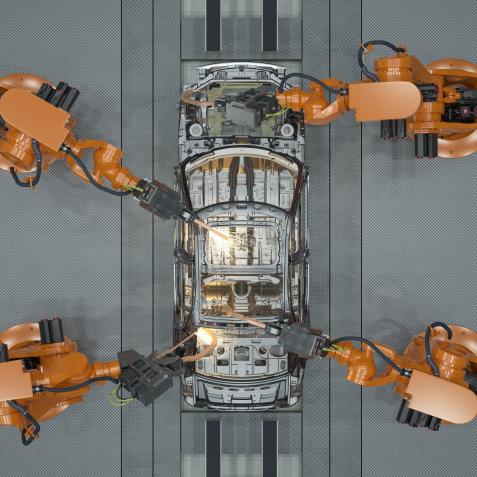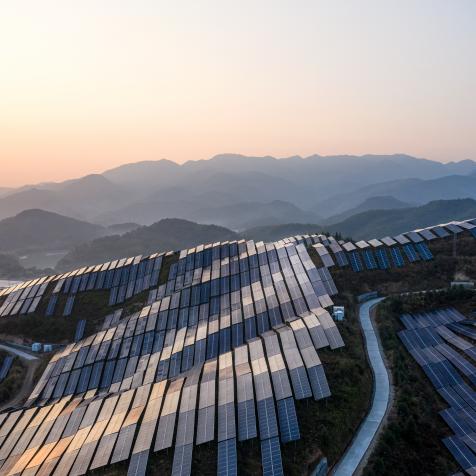
Andriy Onufriyenko
Green Hydrogen Will Fuel the World’s Zero-Carbon Industries
One of the challenges in establishing a zero-emission green hydrogen network in the US is stabilizing supply and storage. Hydrogen (H2) is a carbon-free fuel and an $8 billion ‘H2 Hubs’ program from the Department of Energy aims to ramp up production. But keeping the industry environmentally neutral is difficult.
Companies like SoCalGas in California are part of a Green Hydrogen Coalition focusing on renewable energy to create hydrogen. Solar power will be used to replace almost 25 percent of the company’s current natural gas production, with plans to convert up to four natural gas power plants to green hydrogen.
Hydrogen is a clean-burning gas that can be used in power generation, energy storage, and as automotive fuel. SoCalGas is developing what it says will be the US’ largest green hydrogen pipeline system, the Angeles Link. First among its priorities will be to decarbonize Los Angeles water and power plants, the ports in LA and Long Beach, and trucks servicing heavy industry.
Meanwhile, fuel cell and hydrogen producer Plug Power has deployed more than 165 fueling stations in its gas network. The company plans to build green hydrogen plants in Lousiana and New York that together will produce around 60 metric tons each day and aims to establish production at 500 metric tons daily by 2025.
Plug Power believes that nobody will buy so-called blue or gray hydrogen made from natural gas, which is associated with high levels of carbon dioxide emissions if there is a ready supply of green H2.
Blue hydrogen uses carbon capture and storage technology that is still too expensive and inefficient after decades of research to remove all carbon emissions. And Cornell and Stamford University researchers say both blue and gray may be worse for the climate than burning gas or coal.
Transport is just one of many industries aiming for rapid decarbonization. Rocketing natural gas and oil prices have made driving too expensive for already taxed households. So a switch to green hydrogen makes sense, rather than extracting it from expensive and environmentally damaging fossil fuels.
Phasing out gasoline cars and trucks for H2 and fuel cell technology means quickly building more hydrogen-ready commercial vehicles. The US Department of Energy is currently researching onboard storage tanks that will allow vehicles to drive more than 300 miles on one fill.
Breakthroughs in fuel cell technology are coming too. Researchers at Australian hydrogen electrolyzer firm Hysata have developed a unit that produces green hydrogen from water at 98 percent cell energy efficiency to match the production costs of fossil fuels.
Hysata’s chief technology officer Gerry Sweigers described the introduction of their new category electrolyzer in terms “as monumental as the shift from the internal combustion engine to electric motors.”
Hydrogen promises to revitalize and decarbonize heavy industries like shipping, steel, and chemicals, not just domestic transport and home heating, and that makes it a green, flexible replacement for fossil fuels. If the Department of Energy hits its target of reducing H2 production costs by 80 percent to around one dollar per kilogram in a decade then a hydrogen strategy looks like the right call.


















